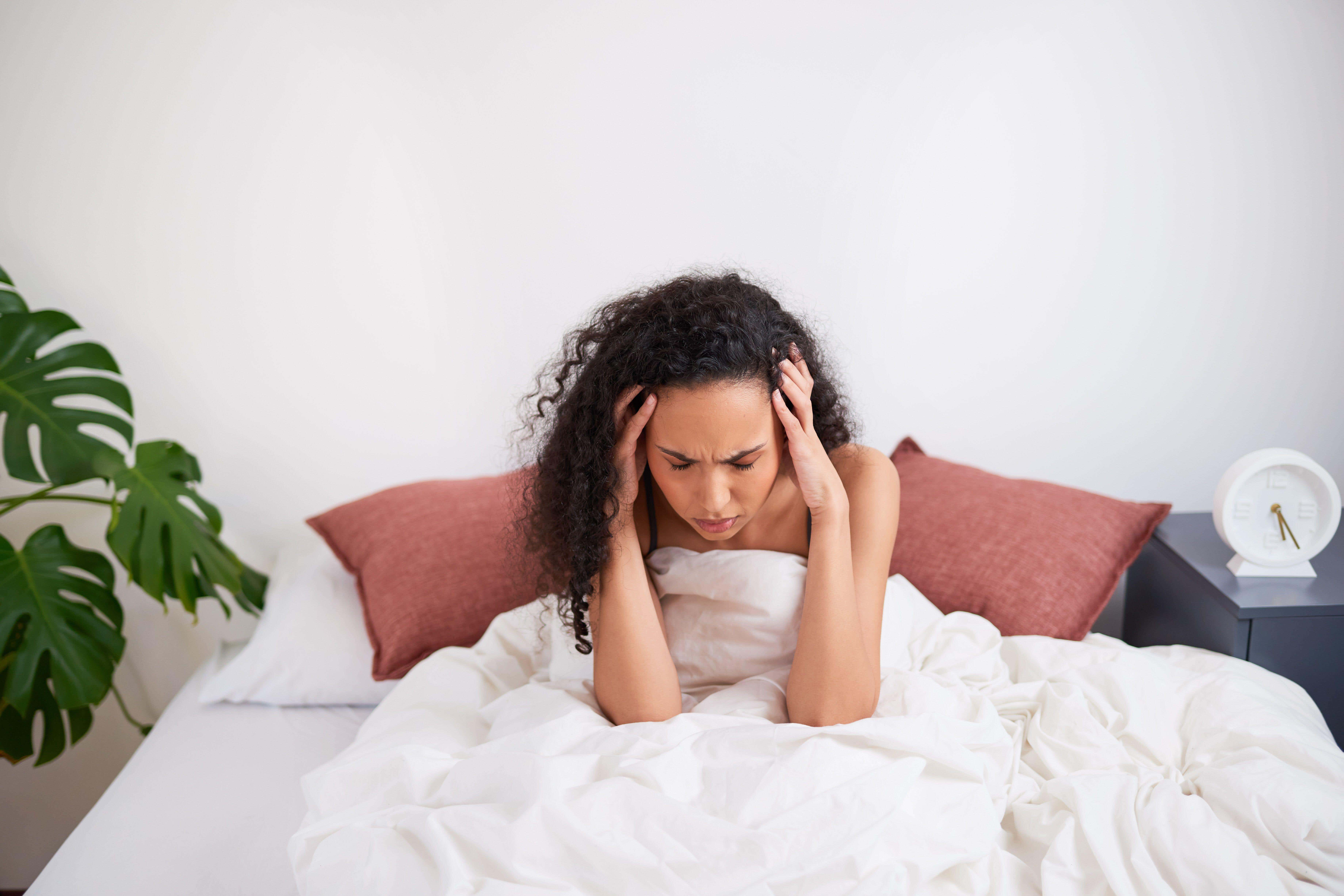This is why you sleep so badly in a heatwave
Heatwaves make our hearts work overtime.

Temperatures are set to reach the sizzling heights of 34-35°C in some parts of the UK today and the humidity may be impacting your sleep right now.
Glorious blue skies and sunshine feels serene during the day, but when it comes to bedtime the same heat can sabotage our quest for sleep.
So how does the heat affect our minds and bodies and how can we overcome it to get that all-important eight hours?
How does the heat affect our bodies at bedtime?
“Part of the normal process of falling asleep involves the body’s core temperature dropping by 1-2°C, alongside a rise in levels of melatonin, which together promote sleepiness,” explains Alison Cullen, qualified sleep consultant and expert for A.Vogel.But when the air around us is sweltering, that natural drop in body temperature gets derailed.
“Excess heat kicks our physiology into high gear, trying to cool us down,” Dr Daniel Glazer, clinical psychologist, explains.
“Blood vessels expand, warm blood rushes to the skin’s surface, and our hearts double-time it in a sweaty bid for relief.
“It’s a metabolic frenzy…instead of unwinding, we’re caught in a loop of overheating and overstimulation.”
Not only do we need lower temperatures to allow us to go to sleep, but we need them to stay low to keep that quality of sleep high during the night, to allow our bodies to repair.
“For adults, it is recommended to keep the temperate between 15.5 and 19.4 degrees Celsius for the best sleeping conditions,” says Luke Cousins, physiology national lead at Nuffield Health.
What’s the mental health impact?
“A lack of sleep can cause restlessness, irritability, anger and a loss of patience,” warns Cousins.
If you experience recurring symptoms, it could affect your mental health.
“Lack of sleep can make you feel tired, grumpy, and can worsen mental health conditions like anxiety and depression,” says Courtney Greene, head of occupational therapy at Cygnet Health Care. “Heat can also cause physical symptoms that affect your mental health.
“For example, you might feel more tired than usual, have headaches, or feel dizzy or nauseous. These physical symptoms can make you feel anxious or down.
“You might find yourself acting differently when it’s hot. For example, you might be more impulsive, or you might have a hard time controlling your anger.”
5 tips to help you sleep during the heatwave
1. Mute all distractionsIf the heat is bothering you at night, think about the other controllables.
“I would recommend muting all possible sleep distractions,” advises Dr Hana Patel, NHS GP and resident sleep expert at Time4Sleep. “This may be fitting blackout blinds to make sure you aren’t waking up too early to investing in a white noise machine to avoid the distraction of outside noise. You may even want to opt for earplugs if you’re a particularly light sleeper.”
2. Drink plenty of water
“Ensure that you have drunk plenty of plain, still water during the day, to remain properly hydrated,” advises Cullen. “Poor hydration can cause night time palpitations, which very effectively wake you up.”
3. Avoid ‘sweat-producing’ food
“Avoid particularly spicy, oily and fried foods as these can make you sweat more and interfere with your digestion,” advises Patel. “You should also keep lighter pre-bedtime snacks in mind as heavy meals can cause symptoms of insomnia and therefore impact the quality and length of sleep you can achieve.”
4. Fill a hot water bottle with cold water
“Rather than freezing a hot water bottle with cold water, as this could damage the hot water bottle material, fill it with very cold water and leave this in the bed for an hour before you go to sleep,” recommends Patel.
“Before drifting off be sure to remove it from the bed as contact with skin is likely to cause discomfort and at very low temperatures, possible skin damage.”
5. Invest in temperature-regulating bedding
“You may want to test the benefits of a lighter tog duvet from 4.5-7 togs or even just a breathable flat cotton sheet,” suggests Patel. “Consider a temperature-regulating mattress if you’ve found yourself to be consistently uncomfortable with sleep over the last few summer seasons.”
Bookmark popover
Removed from bookmarks